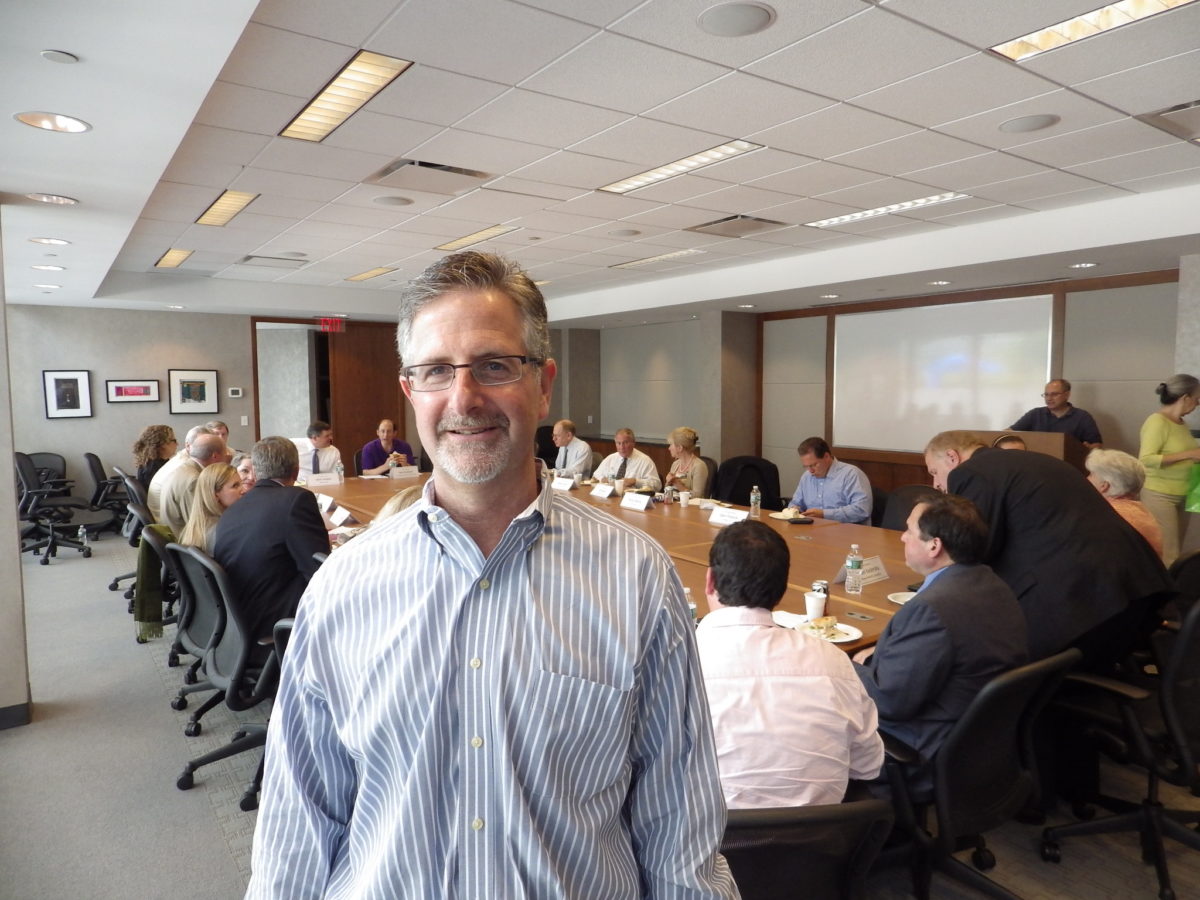Until the recent market pullback, global equities had soared with corporate profits and margins at record highs.
As the economy stabilizes and the Federal Reserve looks to pull back on its bond-buying, financial experts have warned that the years of cheap borrowing and reliance on fixed-income investments are drawing to a close.
With global financial markets in the midst of a readjustment, the Business Journal convened a number of experts in to discuss the viability of so-called alternative investments and what role they should serve in an individual”™s portfolio.

From art to real estate to gold ”” and equities too ”” panelists at the June 27 event “Roads Paved in Gold” delved into areas that could represent investment opportunities moving forward.
The event, which was hosted by the Business Journals and Wag magazine, took place at the Audubon Center in Greenwich, with a discussion moderated by Nancy Murray Ozizmir. The following are excerpts from the ensuing talk:
“At the moment, contemporary art seems to be unstoppable in its market appreciation ”” Damien Hirst, Richard Prince ”” these guys are doing extraordinarily well. A market that hasn”™t been doing so well, say, is ”¦ English furniture, for instance. Like with any market the art market is somewhat cyclical, so I would suggest that it”™s a good opportunity right now to buy English furniture.”
”” David Sleeman
Director of business development,Â
Winston Art Group
“From 2003 up until the present day, the art market in general has quadrupled. … I”™m speaking from auction statistics, which are the most transparent part of the art world. …
“Emerging markets ”¦ are now a part of our business. Their participation in our business is up to 40 percent, whereas in the past decade it”™s been about 5 to 10 percent. … What”™s important to us if you”™re thinking about estate tax considerations and thinking about managing your estate is making sure that your valuations are as up to date as possible.”
”” Courtney BoothÂ
Assistant vice president,Â
Sotheby”™s
“The big thing about a hedge fund is most of them have very broad mandates, and most importantly, they think about their objective as producing absolute returns. ”¦ They want to try to protect their downside risk and are trying to make a certain amount of money, but they”™re really driven by protecting their downside risk and taking advantage of their expertise and where they see opportunity.”
”” Mark SilversteinÂ
Chief investment officer,Â
Endurance
“Just in this last month, (interest rates) for a 30-year residential (mortgage) have gone from 3 percent and now up to as high as 4.625 percent and maybe higher ”¦ so it has had some part of an impact. Having said that, these are still historic lows, so I don”™t think it”™s going to have as much of a negative impact as we may think. Here in Greenwich, we still find that the activity is higher because the inventory is low (and) people want to go in while they have the opportunity. Some of them see this as the bottoming out, so they want to be able to get the low prices as well as the low interest rates, even though they”™re a bit higher than they were in the last year or so.”
”” Pamela PagnaniÂ
Partner,Â
Whitman Breed Abbott & Morgan
“Because ”¦ the adoption rate has been so high globally, manufacturing costs have dramatically dropped, so even over the last four years our costs to install solar have dropped by more than 50 percent across the board.
Any resident or building owner can capture the incentives that are currently in place. Right now for solar you have a 30 percent federal tax credit on the total qualified costs of the system, so if the system is $10,000, it”™s $3,000; if it”™s $1 million, it”™s $300,000. Business owners also have an accelerated depreciation schedule, which they can (use to) write that off in as little as five years. And then Connecticut and New York themselves, on the state levels, have very, very terrific programs going on right now. Connecticut just unrolled theirs last year and it”™s going gangbusters.”
”” Craig Harrigan
Director of commercial solar sales,Â
Encon Solar
“At Gabelli, we view gold as money. JPMorgan said in 1913, ”˜Gold is money, nothing else.”™ It”™s not an investment. It”™s a store of value ”” it”™s a form of savings. It”™s the purest form of savings you can have because it maintains its purchasing power over time. We”™re investors, so we”™re interested in gold equities, which are investments which generate income and can provide growth, and after that tremendous decline recently, of course there”™s a place for gold in a diversified investment portfolio, but we would stick to the gold equities.”
”” Caesar Bryan
Fund manager,
GAMCO Investors”™ International Growth Fund and Gabelli Gold Fund





















